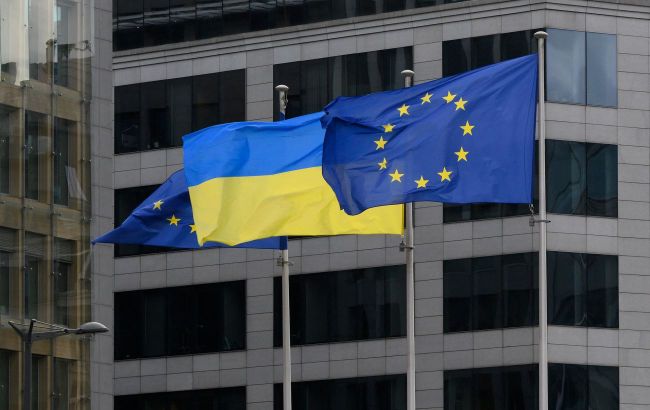Ukraine pushes EU for tough Russia sanctions as US wavers - Reuters
 Photo: Ukraine proposes to the EU to strengthen sanctions against Russia (Getty Images)
Photo: Ukraine proposes to the EU to strengthen sanctions against Russia (Getty Images)
Ukraine will ask the EU to consider new large-scale steps to isolate Moscow. The measures include the seizure of Russian assets and the imposition of sanctions on certain buyers of Russian oil, Reuters reports.
The Ukrainian white paper, which will be presented to the EU next week, urges the 27-country bloc to take a more aggressive and independent stance on sanctions, as uncertainty from Washington remains.
Among the 40 pages of recommendations are calls to adopt legislation that would accelerate the EU's confiscation of assets belonging to sanctioned individuals and send those funds to Ukraine.
In addition, Ukraine is asking the EU to expand sanctions to foreign companies that use bloc technologies to assist Russia, as well as pushing "the introduction of secondary sanctions on purchasers of Russian oil."
Such secondary sanctions, which could affect major buyers such as India and China, would represent a major step that Europe has so far hesitated to take. US President Donald Trump publicly discussed this before deciding not to act for now.
The white paper also includes a call for the EU to consider majority voting on sanctions decisions, to prevent individual member states from blocking measures that currently require unanimity.
US refusal
After a phone call with Vladimir Putin on May 19, Trump decided not to impose new sanctions on Russia, dashing the hopes of European leaders and Kyiv, who had spent weeks urging him to increase pressure on Moscow.
A source familiar with the call told Reuters that Trump spoke with Ukrainian and European leaders after his conversation with Putin and told them he does not want to introduce sanctions now and prefers to give time for negotiations.
The EU and the United Kingdom imposed additional sanctions on Russia on May 20, stating they still hope Washington will join them. But Europeans are now openly discussing ways they can increase pressure on Moscow if Washington is no longer willing to participate.
'Catalyse the EU'
As Reuters notes, Ukraine has tried to publicly avoid any criticism of Washington ever since President Volodymyr Zelenskyy received a dressing down from Trump at the White House in February.
The sanctions document emphasizes the "unprecedented" nature of sanctions already imposed by the EU and speaks of their potential to do more. It also contains a harsh assessment of the Trump administration's commitment to coordination efforts.
"Today, in practice, Washington has ceased participation in nearly all intergovernmental platforms focused on sanctions and export control," the statement says.
Washington has slowed down the monitoring group responsible for enforcing the oil price cap, dissolved the federal task force overseeing sanctions enforcement, and redirected many sanctions experts to other sectors, the document says.
Two potentially major US sanctions packages have been prepared - one by the government and another by Senator Lindsey Graham, a Trump supporter, but it is "uncertain" whether Trump will sign either of them.
Uncertainty about the US position has slowed the adoption of economic countermeasures and multilateral coordination, but, according to the statement, it "should not prompt the European Union to ease sanctions pressure."
"On the contrary, it should catalyse the EU to assume a leading role in this domain," the article states.
'Huge strike'
Ukraine is concerned that Washington's retreat from the Western consensus on sanctions could also trigger wavering within the EU, where consensus is traditionally required for major decisions.
"American withdrawal from the sanctions regime (would) be a huge strike on the unity of the EU. Huge," a senior Ukrainian government official told Reuters.
The EU cannot fully replace the weight of the United States in applying economic pressure on Russia. Much of the impact of US sanctions derives from the dollar's dominance in global trade, which the euro cannot match.

